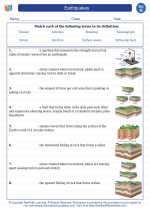Nutrition
Nutrition is the process of obtaining and using food for health and growth. It involves the intake of food, digestion, absorption, and utilization of nutrients by the body.
Essential Nutrients
Essential nutrients are the compounds that the body requires for normal functioning but cannot produce in adequate amounts. They include:
Carbohydrates
Carbohydrates are the body's primary source of energy. They are found in foods such as bread, rice, pasta, and fruits.
Proteins
Proteins are essential for the growth and repair of tissues. They are found in foods such as meat, fish, eggs, and legumes.
Fats
Fats are a concentrated source of energy and are important for insulation and protection of organs. They are found in foods such as butter, oils, and nuts.
Vitamins
Vitamins are organic compounds that are essential for various biochemical reactions in the body. They are found in a variety of foods including fruits, vegetables, and dairy products.
Minerals
Minerals are inorganic nutrients that are important for various bodily functions. They are found in foods such as meat, dairy products, and leafy green vegetables.
Water
Water is essential for hydration and for various metabolic processes in the body. It is found in various beverages and foods, and it is important to drink an adequate amount of water daily.
Digestion and Absorption
After food is ingested, it undergoes the processes of digestion and absorption. Digestion breaks down food into its basic components, and absorption allows these components to be taken up by the body for use.
Healthy Eating
A balanced diet that includes a variety of foods from all food groups is essential for good nutrition. It is important to eat plenty of fruits, vegetables, whole grains, lean proteins, and healthy fats while limiting the intake of processed foods, sugary beverages, and excessive amounts of fats and sugars.
Study Guide
When studying nutrition, it is important to understand the functions and sources of essential nutrients, the process of digestion and absorption, and the components of a healthy diet. Key concepts to focus on include the roles of carbohydrates, proteins, fats, vitamins, minerals, and water in the body, as well as the importance of maintaining a balanced diet for overall health and well-being.
Remember to review and understand the different food groups, their nutritional contributions, and the recommended dietary guidelines for a healthy lifestyle.
Good luck with your studies!
.◂Science Worksheets and Study Guides Eighth Grade. Earthquakes
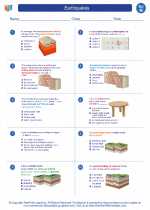
 Worksheet/Answer key
Worksheet/Answer key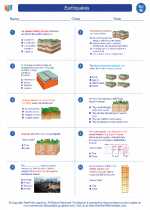
 Worksheet/Answer key
Worksheet/Answer key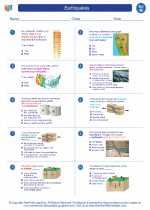
 Vocabulary/Answer key
Vocabulary/Answer key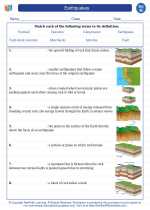
 Vocabulary/Answer key
Vocabulary/Answer key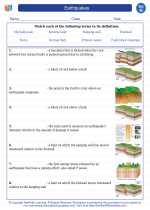
 Vocabulary/Answer key
Vocabulary/Answer key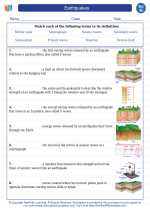
 Vocabulary/Answer key
Vocabulary/Answer key